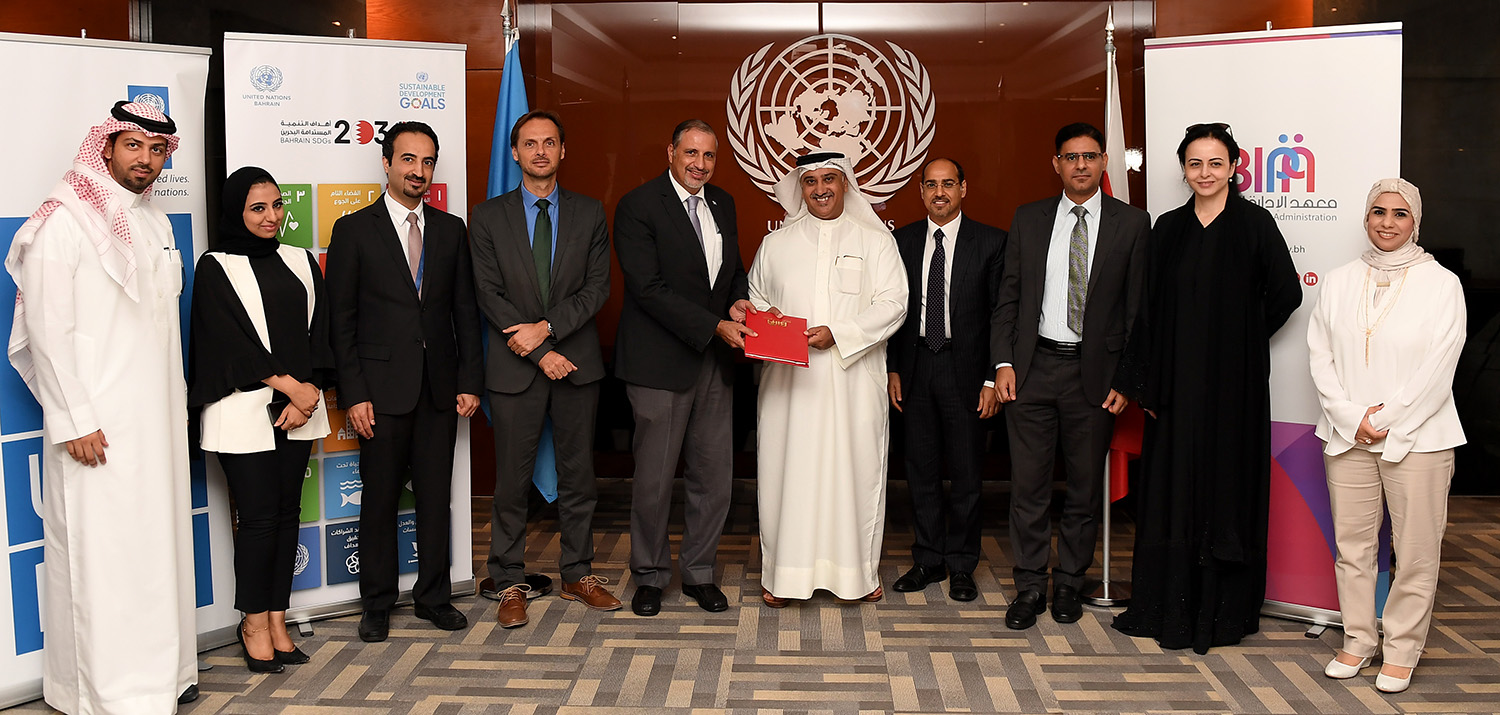

The Bahrain Institute of Public Administration (BIPA) and the United Nations Development Programme (UNDP) signed a project document on Monday 10 September 2018 at the UN House in Manama, Bahrain. The project aims to establish Innovation Labs which will support the strategic path of the government’s actions towards achieving inclusive sustainable development. The Innovation Labs will aim to increase the efficiency and effectiveness of government performance through developing an innovative agenda that will highlight the proposed solutions for government agencies as well as offer a platform to deliver scientific-based policies that will contribute to achieving sustainable development. The signing ceremony was headed by H.E. Dr. Raed Mohammed bin Shams, Director General of BIPA together with H.E. Amin El Sharkawi, United Nations Resident Coordinator and United Nations Development Programme Resident Representative
During his opening statement, H.E. Dr. Bin Shams stated that BIPA seeks, through government Innovation Labs, the integration of the concept of innovation into the government’s system to achieve an effective and sustainable institutional culture. The Innovation Labs will stimulate creativity and innovation. It will also provide the right tools to come up with innovative projects and initiatives based on scientific methods and methodologies.
H.E. Mr. Amin Al Sharkawi, United Nations Resident Coordinator and United Nations Development Programme Resident Representative highlighted the fact that signing of this joint project adds another layer of cooperation with the Bahrain Institute of Public Administration, which has been a longstanding partner of UNDP. It also showcases the efforts of the Kingdom of Bahrain to achieve the Sustainable Development Goals (SDGs), especially Goal 9 (Industry, Innovation and Infrastructure), Goal 12 (Responsible Consumption and Production) and Goal 16 (Peace, Justice and Strong Institutions). . H.E. Mr. Al Sharkawi also stated that the Innovation Labs are a new concept in the government system; as they introduce a new innovative way to confront challenges and provide a comprehensive set of new tools and methodologies. He added that, these efforts are also the beginning of cooperation to establish Innovation Labs across the country focusing on several topics with partners such as the University of Bahrain and the Ministry of Youth and Sport Affairs. Finally, he stressed the fact that the future language will be that of innovation and knowledge excellence, be it in the government or the private sector. “Through the network of UN offices, we will learn about scientific methodologies and practical tools based on some of the lessons which we will learn from setting up such laboratories in different countries the matter which will help us to achieve sustainability in finding solutions today and in the future,” he said.
It is worth mentioning that the Innovation Labs are in line with the Institute’s four strategic objectives for enhancing services aligned with the developmental aspirations, providing optimal resource management & leadership enabling service provision, enhanced and supportive policies for the processes of sustainable development, and providing a culture of continuous change and innovation for development. BIPA’s aspiration is to make every government employee capable of making government policies that contribute to solving the problems and upgrading the governmental work system by giving them the tools, which help them to create government projects, and initiatives, which in return will contribute to raise the efficiency of the work system for the government.
